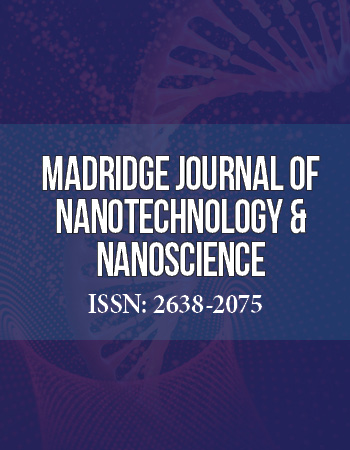3rd International Nanotechnology Conference & Expo
May 7-9, 2018, Rome, Italy
The Effect of Phytosome of Phytochemicals Extracts in Combination with Probiotics and Prebiotics on the Treatment of Induced Colon Cancer in Rats
The University of Jordan, Jordan
Cancer is the most terrified disorder disease. It is one of the most leading and second cause of morbidity and mortality in Jordan.
The experiment was designed to study the effect of combination of different plant extracts with and without probiotics and a combination of different phytosomes of extracts with and without probiotics and a combination of probiotics alone. Experimental design was used to study the experimental in azoxymethan- induced colon cancer rats (15 mg/kg) being injected in intravenous tail. Four doses were used on the basis of one dose/week for one month. Rats were sacrificed after 30 weeks by diethylether.
The total phenolic content of plant extracts, total flavonoid content and total tannins content were determined. The total antioxidant capacity of plant extracts and their phytosomes was estimated by using 1, 1-diphenyl-2-picrylhydrazyl (DPPH) method.
The chemopreventive ability of different remedied was assessed using histopathological marker adenoma and adenocarcinoma in rat colons and by using cytokines level IL2, IL10 and TNF alpha.
On one hand, the positive group, all rats were finding to be with induced colon cancer and in histopathological test all were with dysplastic lesion observed of colon tumor with 100% incidence. On the other hand, the negative control were all with normal epithelial tissue without any tumor incidence, there was significant differences between the seven groups with AOX injected rats in term of tumor incidence.
The seven groups, except positive and negative groups, were treated with different remedies and with a varied response in term of colon cancer incidence. Group six, which was treated with phytosome, during injection of AOX showed 100% protection. The group three was treated with phytosome but after the injection of AOX, showed a 60% normal epithelial (no tumor) and 40% with small adenoma which means that the remedies suppress the growth of the tumor.
The other groups varied in the percentage of colon tumor incidence; it was reduced significantly (P<0.05) in all groups administrated with AOX and treated with different remedies, except that in group five it was 100% of colon tumor incidence.
Our finding is promising in which phytosome showed a preventive and suppressive effect against colon carcinogenesis and consequently considered as chemopreventive treatment. Probiotics in combination with phytosome showed a depressing effect in comparison with probiotics alone. Finally the use of phytosome technique is a promising treatment to prevent and even to suppress the incidence of tumor.


